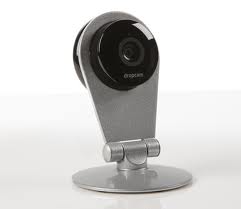Dropcam is watching you.
To date, the four-year-old startup has raised $47.8 million for its HD wireless home-monitoring cameras that allow consumers to watch the kids from the office, glimpse which neighbor isn’t picking up after his dog, or catch break-ins.
Greg Duffy, Dropcam’s 26-year-old cofounder and CEO, won’t disclose how many of the company’s $150 cameras the company has sold, but he will say that the company is enjoying “5x” year-over-year revenue growth from a “significant sample of users” that “cut across nearly every demographic.”
That’s a lot of video. The company claims that it uploads more video each day than YouTube.
What Dropcam plans to do with all that video is where things get interesting. At Dropcam’s San Francisco offices, where 45 people are now employed, Duffy hints that Dropcam will soon dip its toe into the lucrative realm of home security.
It makes perfect sense. It also puts the company’s funding into perspective.
Right now, 40 percent of Dropcam’s customers pay $9.99 or $99 per year to save up to seven days of video footage, partly for home security purposes.
Duffy believes Dropcam can capture a much larger piece of the home security pie because, in his view, it’s a market that’s just waiting to be disrupted Not only are the “ADTs of the world” “generally stuck in past eras of technology,” but “they charge you insanely high prices for a very simple service,” he notes.
ADT’s most basic plan — which includes a motion detector, two wireless door or window sensors, and a wireless key fob that enables users to control the system – costs $42.99 per month, a $300 installation fee and requires a three-year commitment. More “advanced” services — including stored video footage and email alerts — cost $57.99 a month, with a $500 installation fee and a three-year contract.
That’s big business: ADT has a market cap of $8.7 billion dollars.
Companies like ADT “make you think that to keep your family safe, you need to pay for something that’s essentially as expensive as a cell phone and requires [an even longer] contract,” Duffy says. “But it costs them nothing to deliver the service, and using today’s technology, you could deliver [the same service] for a fraction of the price.”
Dropcam’s investors — Institutional Venture Partners, Accel Partners, and Kleiner Perkins, among others — evidently think so, too.
Sign up for our morning missive, StrictlyVC, featuring all the venture-related news you need to start you day.

